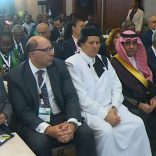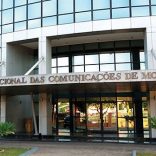Maputo: Businesspeople from Mozambique and Dubai discuss new investment opportunities
Entrepreneurs from Macao are seeking out business opportunities in Mozambique – “a country with everything, for everyone”

Macauhub / China Council for the Promotion of International Trade
The recent state visit of the President of the Republic of Mozambique Filipe Jacinto Nyusi to Beijing this past May confirms the commitment of both countries to strengthening their relationship. The two countries have agreed to increased bilateral cooperation in areas such as politics, security, economy, trade and culture.
How will this partnership affect Macao’s entrepreneurs?
Macao has recently taken measures to ensure promoting and supporting investments, especially in Portuguese-speaking countries: establishing increasingly strong relations with Mozambique is a practical example of this objective.
Several local enterprises have been keeping abreast of Mozambique’s market and are already establishing business developments. According to Danilo Cândido, a Mozambican businessman who has resided in Macao for over 20 years, “Mozambique is a country that currently has something for everyone.”
Cândido, the director of Alcançar Moçambique Sociedade Comercial Limitada (AMS) was among the Macao delegation accompanying President Nyusi’s state visit to Beijing. AMS provides consulting services; wholesale import of agricultural, marine and mineral products from Mozambique to Asia; and export of various products produced in Asia: building materials and equipment, clothing and footwear, stationery, among others. Cândido travelled to Beijing with a goal to exchange views with Mozambican entrepreneurs and to seek out potential business partners.
“The trade balance in Mozambique is very unequal at this point in time. Import is clearly higher than export. It needs to be balanced,” claims Cândido. “If we think of agricultural products, for example, the land is fertile and there is often big waste because there is no consumption or export. It would make sense to bring these products to the Asian market. But the pace in Mozambique is very slow.”
Cândido sees great potential in Mozambique, but he also anticipates great challenges, especially when it comes to trade.
Housing: A signature of Macao
Afonso Chan, vice-president of Charlestrong Infrastructure and Building Materials Development Ltd, a Macao construction company established in 2012, believes that Mozambique’s business growth is moving at a satisfactory pace. The company’s investment plan aims to develop the markets of East Timor and Mozambique. Of the two, “Mozambique has proved to be a country with the greatest potential in the enterprise segment,” asserts Chan, who is fluent in both Chinese and Portuguese.
On 26 August 2014, a memorandum of understanding between Charlestrong and Fundo de Fomento de Habitação de Moçambique (the Mozambique Housing Development Fund) was signed to develop the second phase of the Olympic Village in the neighbourhood of Zimpeto, on the outskirts of Maputo. A consortium led by the Portuguese company Mota-Engil built the first phase of the project. “It was a small project; we only had to build 240 apartments. It was completed in 12 months, and the apartments are already for sale.”
In addition to financial returns, this project has yielded something Chan considers even more crucial: the trust of the Government of Mozambique. “The success of this project made it possible to sign an agreement in January 2015 to build 35,000 housing projects in Mozambique.” Construction will begin later this year.
Afonso is confident that the project will be completed by 2019. “Since this is part of the Government of Mozambique’s five-year plan, it’s not only a commercial project but also a political project.”
To finance the project, Charlestrong will partner with two Chinese enterprises with existing interests in Africa – BNBM Group and China Machinery Engineering Cooperation – utilising Macao as a platform for all negotiations. “Entrepreneurs from Macao should take advantage of financing from Chinese state-owned enterprises and leverage their geographical positioning to bid on projects,” encourages Chan.
Chan acknowledges that there are some aspects that could be improved. “A Macao entrepreneur has great difficulty in obtaining financing. There is a general understanding that commercial banks feel that an investment in an African country is a risky investment, and everything has to be carefully evaluated from a commercial point of view. This makes the processes time-consuming, and time is money.”
Another major challenge lies with the difficulty in finding bilingual professionals fluent in both Portuguese and Chinese. “Contrary to the assumption that these two languages co-exist in Macao, we [businessmen] often have to find [such professionals from] outside, because they actually are difficult to find in Macao,” says Chan.
Charlestrong recently signed an agreement with the Polytechnic Institute of Leiria in Portugal establishing an internship within their Mozambique offices for three final-year students studying translation.
Investing in Good Health
One of the major investments made by Chinese companies in Mozambique pertains to professional training. In addition to creating jobs, entrepreneurs have brought “know-how” to young Mozambicans.
The need for training drew the attention of Guangdong’s Macao Traditional Chinese Medicine Technology Industrial Park Development who saw an opportunity to transmit knowledge in the field of traditional medicine. According to Yuki Hong Lu, president of the park, “Nowadays there is great demand in African countries for traditional medicine; Mozambique has even established its own Institute of Traditional Medicine and has begun training professional practitioners in the field.”
However, “Traditional Chinese medicine (TCM) in Mozambique is still in the phase of establishing quality standards and thus requires technical support and preparatory experience.”
Lu believes that the legislative experience, technical support, training and resources that exist in laboratories in Macao and mainland China can promote and enhance the industrial base of TCM in Mozambique.
“Mozambique has abundant medicinal plant resources such as moringa and African potatoes, and some medicinal plants are already being exported to other countries,” says Lu.
In April 2016, the Industrial Park visited Mozambique and conferred with the Ministry of Health, concluding “bilateral cooperation in the sector of industrial capacity is possible.”
Macao: An important economic and trade link
During President Nyusi’s state visit to Beijing, entrepreneurs who joined the Macao delegation arranged by the Macao Trade and Investment Promotion Institute (IPIM) also had the opportunity to participate in an organised seminar: “China-Africa Industrial Capacity Cooperation Forum – Mozambique Business Opportunities.”
Gloria Ung, an executive member of IPIM, recalls some seminar key points: “Mozambique is an important channel at the entrance to the South African market and is considered one of the important ancient commercial maritime routes of the ‘Maritime Silk Road’ and an important trade port linking China to the West and African regions across the sea.”
“As an important link of the ‘Maritime Silk Road’ of the 21st century, Macao plays a unique role as a service platform for economic and trade cooperation between China and Portuguese- -speaking countries. We have reason to believe that, following the implementation of the national strategy ‘One Belt, One Road’, the economic and trade cooperation between Macao and Mozambique will be greatly enhanced, especially in the fields of infrastructure, engineering, construction and tourism,” she concludes.
By: Catarina Mesquita













Leave a Reply
1 Comment on "Entrepreneurs from Macao are seeking out business opportunities in Mozambique – “a country with everything, for everyone”"
You must be logged in to post a comment.
You must be logged in to post a comment.
Could anyone tell Mozambican enterpreneurs where are the Chinese seeking business opportunities in Mozambique.